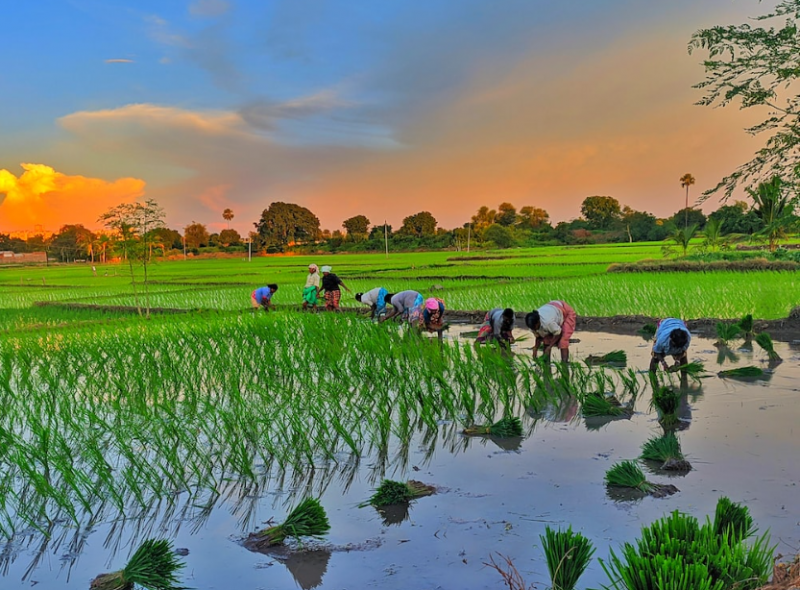
New Delhi: India, the largest exporter of rice in the world, has announced a ban on some international sales of the grain "with immediate effect," according to the government. This move may cause rice prices to rise even further.
Due to the COVID-19 pandemic, the war in Ukraine, and the effects of the El Nino weather phenomenon on production levels, rice prices have risen to decade-high levels on international markets.
According to the consumer affairs and food ministry, India would prohibit the export of non-basmati white rice, which makes up about a quarter of its total production.
Also Read: Sunak, the British prime minister, avoids defeat in crucial elections
The decision would "ensure adequate availability" and "allay the rise in prices in the domestic market," it said in a statement late on Thursday.
The decision could "risk exacerbating food insecurity in countries highly dependent on rice imports," data analytics firm Gro Intelligence warned in a note. India is responsible for more than 40% of all global rice shipments.
The firm added that countries that are anticipated to be affected by the ban include those in Africa, Turkey, Syria, and Pakistan, all of which are already dealing with high food price inflation.
According to the ministry, non-basmati white rice exports from India increased 35% year over year in the second quarter due to increased global demand.
The increase happened despite the government's September ban on broken rice shipments and its imposition of a 20 percent export tax on white rice.
Last year, India exported 10.3 million tons of non-basmati white rice, and senior analyst at Rabobank Oscar Tjakra claimed that substitute suppliers lacked the capacity to make up the shortfall.
Also Read: Spain turns on all of its gas plants in order to combat the heatwave
According to him, the top exporters are typically Thailand, Vietnam, and, to a lesser extent, Pakistan and the US. They won't have enough rice to replace these, they say.
He noted that wheat prices have already begun to increase as a result of Moscow's cancellation of the Black Sea grain agreement that protected Ukrainian exports.
Given that rice can be used in place of wheat, there will undoubtedly be an increase in global inflation.
Also Read: Ukraine's Culture Minister Offers to Step Down Amid Wartime Spending Concerns
In the year leading up to March, rice prices in India increased 14–15%, and the government "clearly viewed these as red lines from a domestic food security and inflation point of view," according to a note by Pushan Sharma, research director at ratings agency Crisil.
India already reduced its sugar and wheat exports last year to keep prices in check.